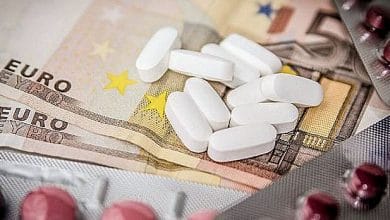
In the presence of the President of the Republic, Sergio Mattarella, and the Minister of Health, Giulia Grillo, the Ministry of Health celebrated the 40th anniversary of the National Health Service with an event at the "Biagio D'Alba" Auditorium on 12 December. At the center of the event, the  testimonials from NHS protagonists: Paola Accardi, nurse, Italo Paolini, doctor, Fabio Bernagozzi, 118 volunteer, Roberto Mezzina, Director of the Mental Health Department of ASL Trieste, Annarita Cosso, patient association representative, Alberto Mantovani, researcher, Nunzia Verde, student resident.
testimonials from NHS protagonists: Paola Accardi, nurse, Italo Paolini, doctor, Fabio Bernagozzi, 118 volunteer, Roberto Mezzina, Director of the Mental Health Department of ASL Trieste, Annarita Cosso, patient association representative, Alberto Mantovani, researcher, Nunzia Verde, student resident.
At the end of the event “40 years of the National Health Service, 1978-2018. The challenge continues" President Mattarella greeted those present: "These forty years represent an important story for our country, a largely positive page - as was recalled by the protagonists who spoke before the minister - which really puts us at the forefront of the international community.
In his speech, Minister Grillo recalled that in the Italy of mutual societies, thousands of Italians, the poorest, often did not have access to care. The patient was not the protagonist of the health choices that concerned him, but mostly passive recipient of direct indications from above.
In the 1970s, the time was now ripe for the assistance system to adopt new rules, a modern and finally fair vision, through an organization that fully implemented the principles of the Constitution.
 At the end of a troubled year like 1978, however, the country managed to express three fundamental health laws, which after 40 years are still a social heritage: the law 180, the so-called Basaglia law which allowed the closure of asylums and the law 194 on motherhood which eliminated the tragedy of clandestine abortions. The law 833 it was a revolution, because it enshrined public responsibility for health protection, universality and equity of access to health services, global coverage based on essential levels of assistance, public funding of services through general taxation, ownership of rights throughout the national territory and mutual assistance between the regions.
At the end of a troubled year like 1978, however, the country managed to express three fundamental health laws, which after 40 years are still a social heritage: the law 180, the so-called Basaglia law which allowed the closure of asylums and the law 194 on motherhood which eliminated the tragedy of clandestine abortions. The law 833 it was a revolution, because it enshrined public responsibility for health protection, universality and equity of access to health services, global coverage based on essential levels of assistance, public funding of services through general taxation, ownership of rights throughout the national territory and mutual assistance between the regions.
Today the problem is not spending less, but spend better. I would like us to address the issue of citizens' health in terms of investment for the future. The health system represents over 11% of the entire GDP, and therefore constitutes a great opportunity for citizens and for the virtuous development of the country.
Success or failure will be determined exclusively by the ability to identify a new model and remedy the distortions present today, eliminating the dispersion of public money and carefully weighing up which is the best quality of performance for each level of expenditure.
We cannot afford mistakes or some past weaknesses.
We have already started reviewing the governance model in the pharmaceutical and medical device industries. Is not sufficient.
I can assure you that we will not give in to the privatization of citizens' fundamental rights: universalism, gratuity and equity will continue to be the basis of our healthcare system.
Best wishes to the National Health Service, best wishes to Italy which looks to the future without betraying its founding principles which are alive in our Constitution and in our hearts.
From the Statement from the Ministry of Health
Andrea Mandelli, President Fofi, said: “it is necessary to remember how the principles of universality and fairness at the basis of our system are today called into question by a policy which has privileged accounting over efficiency and efficacy. Today the Minister of Health Giulia Grillo defined the Health Service as the largest company in the country. It is true, and so it should not be forgotten that companies need to invest in research, organizational improvements, personnel and their training”,
Healthcare, the economic crisis and the assault on universalism
In our country, the demolition of the public service is based on the definancing of the sector and on the promotion of the private insurance "second pillar". A design made much more dangerous by the absence of any resistance on the "left"
The following text is a summary of the article published in the Theme section of no. 2/2018 of the Journal of Social Policies. This is instead the links to the column that Rassegna dedicates to the publication.
The year 1978, so full of significant dates for health on a national level (law 833/78, law 180/78, law 194/78) and international (Declaration of Alma Ata, September 1978), represents a sort of watershed in history (also in the field of health care), with a "before" and a "After". The "before" is the period following the end of the Second World War, in which the expansion of universalistic welfare is recorded - a common trait of European liberal-democratic and social-democratic governments - and the principle is affirmed according to which some fundamental services, such as education and healthcare, must be removed from market mechanisms and therefore be guaranteed by the State, to offer equal opportunities to all and to reduce the risk of widening inequalities within society (caused precisely  from the market).
from the market).
The "after" starts in the early eighties, with the election of some ultra-conservative leaders – Margaret Thatcher in Great Britain (1979) and Ronald Reagan in the United States (1980) – and with the emergence of neoliberalism. Neoliberal policies also apply to healthcare, which is becoming a land of conquest of the market on a global level, as stated in an article by The Lancet of 2001: “Over the past two decades, the drive towards market-based health system reforms has spread throughout the world, from North to South, from West to East. The global model of health system has been supported by the World Bank to promote the privatization of services and increase private financing through direct payment of services (user fees). These attempts to undermine public services, on the one hand, pose a clear threat to equity in countries with robust welfare systems in Europe and Canada, on the other, they pose an imminent danger to the fragile systems of countries with medium and low income".
Rudolf Klein has compared the transformations of health systems that have taken place since the 1980s onwards in every part of the world, to a sort of planetary epidemic. A powerful motivation for the restructuring of health systems is to be found in the need to face the costs deriving from growing consumption fueled by the extension of the right to access services, the aging of the population and the introduction of new biotechnologies. In the period between 1960 and 1990 in the 29 most industrialized countries belonging to the OECD, the median health expenditure per capita had increased from 66 to 1,286 dollars, while the median percentage of health expenditure on GDP rose in the same period from 3.8 to 7.2%.
The need to contain costs by eliminating inappropriate or unnecessary expenses and giving the system more efficiency, it was accompanied by another type of push, of a political-ideological order: the tendency towards privatization and the introduction of the free market, according to the lines of neoliberal politics. The chronological coincidence of the two types of pressure ("more efficiency" and "more market") had the effect of giving more strength and justification to the second, through the following reasoning: only by applying the rules of the market, i.e. by injecting powerful doses of competition and privatization, the system can become efficient.
 In 2011 the English magazine BMJ extension published an article signed by two of the most well-known and expert analysts of international politics, Martin McKee and David Stuckler, entitled "The assault on universalism”. According to the authors, the reform of the National health service (NHS), then in gestation, wanted by the conservative government, aimed to dismantle the glorious National Health Service, born in 1948, from its foundations: it was a real assault on universalism. Their thesis was that the economic and financial crisis was being used to destroy universal welfare systems, such as the NHS and other national health services: “The economic crisis has offered the government a once in a lifetime opportunity. As Naomi Klein has described in many different situations, those who oppose the welfare state they never waste a good crisis.”
In 2011 the English magazine BMJ extension published an article signed by two of the most well-known and expert analysts of international politics, Martin McKee and David Stuckler, entitled "The assault on universalism”. According to the authors, the reform of the National health service (NHS), then in gestation, wanted by the conservative government, aimed to dismantle the glorious National Health Service, born in 1948, from its foundations: it was a real assault on universalism. Their thesis was that the economic and financial crisis was being used to destroy universal welfare systems, such as the NHS and other national health services: “The economic crisis has offered the government a once in a lifetime opportunity. As Naomi Klein has described in many different situations, those who oppose the welfare state they never waste a good crisis.”
In the UK, the feared NHS reform came into force in 2013, producing the total privatization of health services. A similar fate befell Spain: here too a conservative government did not miss the opportunity provided by the crisis to get rid of the universal healthcare system – with a simple royal decree (April 2012) – to hand everything over to the insurance companies. The assault on universalism is also underway in Italy. But unlike what happened in Great Britain and Spain, in our country the assault has not found a transparent political and legislative path.
In Italy the assault on universalism - and on the founding principles of law 833 approved 40 years ago – manifests itself in a design bipartisan based on the definancing of the public health sector and the promotion of the private insurance "second pillar". A design very similar to the one hatched in 1992 by Minister De Lorenzo, but made much more dangerous today by the convergence of multiple interests and the absence of any resistance on the "left". It is to be hoped that the many initiatives that are in the pipeline to commemorate the 40 years of life of the National Health Service will serve to awaken from their sleep the political and trade union forces that have (or should have) the concept of right in their ideal baggage to the health and equality of all people in the face of disease.
Gavino Maciocco is professor of public health at the University of Florence
Related news: 40 years SSN, Monaco (FNOMCeO): "The Orders guardians of citizens' rights"
Law 23 December 1978, n. 833 “Establishment of the National Health Service.
- 29. The production and distribution of medicines must be regulated according to criteria consistent with the objectives of the national health service, with the social function of the medicine and with the prevailing public purpose of production.
- The following rules are laid down by State law: … g) for the regulation of the scientific information service on drugs and of the activity of scientific representatives
- 31. (Advertising and scientific information on drugs). – The National Health Service is responsible for providing scientific information on medicines and control over the scientific information activity of the companies holding authorizations to market drugs. …
- Under the program referred to in the previous paragraph, local health units and businesses referred to in the first paragraph, in compliance with their own competences, they carry out scientific information under the control of the Ministry of Health.
- Until the entry into force of the new general regulation of drugs referred to in article 29, the Minister of Health determines with his own decree the limits and methods for the propaganda and advertising to the public of drugs other than those indicated in the previous paragraph, taking into account the health education objectives referred to in the following paragraph and the relevant directives of the European Economic Community.
- Ministerial Decree of 23 June 1981 – Article 1- taken from Ministerial Decree November 23, 1982 And Ministerial Decree February 26, 1985.
- ” The activity of scientific information on medicines for human use …. it must be aimed at ensuring the correct use of the drugs themselves, too with reference to the need to limit the related consumption".
- ... Considering the effects of the informant's activity within the National Health Service, the establishment of a full-time and subordinate employment relationship is to be considered qualifying.





